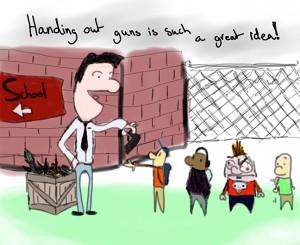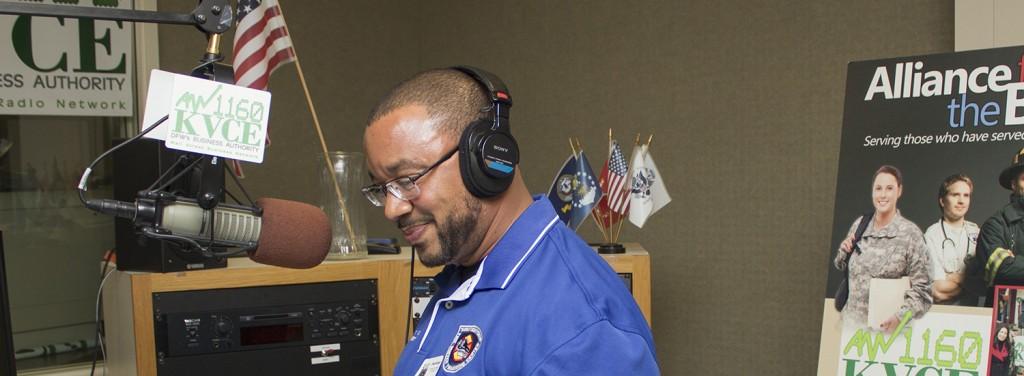A college or university campus should always feel safe. Healthy learning environments would require that students have a sense of safety while attending classes, hanging out for extracurricular activities or just simply waiting in between classes.
In light of that, it would seem that a bill in the Texas Legislature allowing firearms on campuses carried by students, faculty and staff sounds like a good safety measure.
The problem is, it’s not.
In fact, guns won’t make any campus safer, especially in the hands of just anyone who happens to be at the college or university.
If passed into law, the bill would limit those able to carry to people who are licensed and have gone through proper training. While this is a nice safety net, it’s not enough to put many at ease.
Many who champion this idea, arguing this will prevent mass campus shootings like Virginia Tech from happening, have a point. Situations like Virginia Tech are

possible, and if people on campus were allowed to bring their firearms, the massacre might have stopped far earlier and prevented many deaths.
But the same laws that would allow good people who only want to use guns as a way to defend people from “the bad guys” to carry on campus also allow people who are unstable or apathetic to human life to carry them onto campus as well.
A concern worth noting as well is the confusion that comes with firearms being thrown into an already chaotic situation. If there’s an active shooter on campus and a student wants to take out a concealed firearm to help protect the classroom, there’s no way for campus police to know who the active shooter is.
All this is riding on the assumption that a person can hit a target perfectly and the bullets don’t ricochet and hit unarmed students or faculty in the classroom.
The most popular argument that has found its way into the hearings in Austin over the last few days is that guns would help potential sexual assault victims.
While the idea of a bullet being able to stop an advancing attacker sounds good, this argument works under the assumption that the victim can easily access a concealed weapon. Also, sometimes people are shot with their own guns after having it wrestled away from them.
There’s almost no mention of a system that would allow anyone to know who is actually licensed to carry.
No one can memorize a whole student body and know who’s carrying a gun and who’s actually licensed to carry it. It’ll be concealed and only surface when the owner feels it’s needed.
Guns have hardly been the great peacemakers that many enthusiasts make them out to be. Firearms sometimes act as aggravators or agitators to situations that are already tense and fragile. Arguments don’t just de-escalate because someone brings out a gun.
With both the governor and lieutenant governor expressing support, the campus carry bill is a serious consideration that campuses might expect to become reality very soon.
And as much as anyone wants to prevent campus violence and sexual assault from escalating, college campuses have many resources at their disposal, including armed campus police. Their abundance of resources can aid in subsiding those problems of safety.
A firearm as a safety blanket is much like using a machete to julienne some carrots: It’s a heavy-handed solution that can create more problems in its wake.























